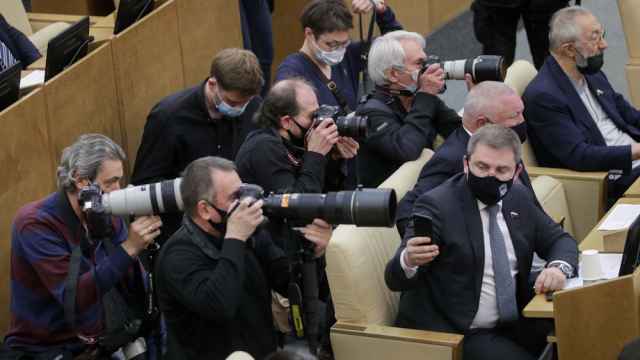Russian internet providers have moved to block the website of opposition leader Alexei Navalny a week after his corruption investigation into a billionaire and a government official went viral.
Navalny alleged last Thursday that metals tycoon Oleg Deripaska discussed “solving the U.S. issue” with Deputy Prime Minister Sergei Prikhodko, a top foreign policy official, three months ahead of the 2016 U.S. presidential election.
The expose suggesting Deripaska acted as a messenger between the Kremlin and U.S. President Donald Trump’s ex-campaign chief Paul Manafort has gathered millions of views.
A court in Deripaska’s native region of Krasnodar on Friday ordered the removal of several Instagram posts and YouTube videos showing him with Prikhodko on a yacht, for infringing his privacy.
Navalny has said the court order and its enforcement by the telecommunications watchdog Roskomnadzor also applied to his website, Navalny.com.
“Roskomnadzor has begun blocking Navalny.com on Deripaska’s demand. It still opens via some providers, but that is temporary,” Navalny tweeted on Thursday.
Deripaska won the court order against a woman who goes by the nickname Nastya Rybka, whose Instagram posts, book excerpts and open-source data Navalny used to establish a connection between the billionaire and Prikhodko.
Instagram has already complied with the order and removed the posts used by Navalny that had not yet been deleted by Nastya Rybka, the Vedomosti business daily reported Thursday.
Google warned earlier this week that Navalny’s YouTube channel will be blocked if an excerpt of his graft investigation into Deripaska and Prikhodko remained online.
YouTube and Instagram did not respond to a request for comment from The Moscow Times.
A Message from The Moscow Times:
Dear readers,
We are facing unprecedented challenges. Russia's Prosecutor General's Office has designated The Moscow Times as an "undesirable" organization, criminalizing our work and putting our staff at risk of prosecution. This follows our earlier unjust labeling as a "foreign agent."
These actions are direct attempts to silence independent journalism in Russia. The authorities claim our work "discredits the decisions of the Russian leadership." We see things differently: we strive to provide accurate, unbiased reporting on Russia.
We, the journalists of The Moscow Times, refuse to be silenced. But to continue our work, we need your help.
Your support, no matter how small, makes a world of difference. If you can, please support us monthly starting from just $2. It's quick to set up, and every contribution makes a significant impact.
By supporting The Moscow Times, you're defending open, independent journalism in the face of repression. Thank you for standing with us.
Remind me later.






